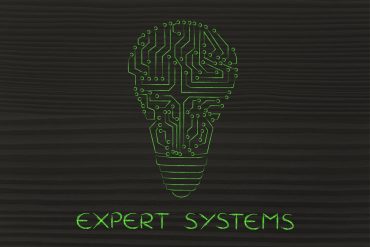
In the news this week: More companies offer AI-based software to enable safe return to work environments, Intel and Informatica separately launch AI educational initiatives, and more.
Keeping pace with news and developments in the real-time analytics market can be a daunting task. We want to help by providing a summary of some of the items our staff came across each week. Here is a short list of some news from this week:
Informatica has launched a collaborative technology initiative with The ADAPT Centre, a Science Foundation Ireland (SFI) Research Centre for Digital Media Technology. The ADAPT Centre, funded by SFI, focuses on developing next-generation digital technologies that transform how people communicate by helping to analyze, personalize, and deliver digital data more effectively for businesses and individuals. Informatica’s R&D team collaborates with ADAPT to leverage its leading-edge applied research in Artificial Intelligence (AI) and Natural Language Processing (NLP) to further accelerate the application of AI and Machine Learning (ML) to automate Informatica’s portfolio of enterprise cloud data management offerings.
Intel is partnering with Maricopa County Community College District (MCCCD) to launch the first Intel-designed artificial intelligence (AI) associate degree program in the United States. The Arizona Commerce Authority will also provide a workforce grant of $100,000 to support the program. It will enable tens of thousands of students to land careers in high-tech, healthcare, automotive, industrial, and aerospace fields. The AI program consists of courses that have been developed by MCCCD’s faculty and Intel leaders based on Intel software and tools such as the Intel Distribution of OpenVINO Toolkit and Intel Python. Intel will also contribute technical advice, faculty training, summer internships, and Intel mentors for both students and faculty members. Students will learn fundamental skills such as data collection, AI model training, coding, and exploration of AI technology’s societal impact. Upon completion, MCCCD will offer an associate degree in artificial intelligence that can be transferred to a four-year college.
Tata Consultancy Services (TCS) announced the launch of IUX for Workplace Resilience, a business command center solution that helps enterprises make it safe for employees returning to work amid COVID-19 and for customers doing business with them. IUX for Workplace Resilience helps overcome return to work challenges by blending risk management with key business relaunch functions spanning workforce safety, regulatory support, operational resilience, and customer engagement. Designed for business leaders at banks, retailers, corporate offices, and campuses emerging from the lockdown, the cloud-based solution helps organizations protect employees and customers, comply with evolving government regulations, and make operations more resilient despite ongoing disruption. The software lets businesses monitor infection risk at locations and take immediate action, recording compliance. It enables contact tracing with proximity data from devices such as mobile phones and badge scanners.
IBM announced it’s donating a series of open-source toolkits designed to help build trusted AI to a Linux Foundation project, the LF AI Foundation. As real-world AI deployments increase, IBM says the contributions can help ensure they’re fair, secure, and trustworthy. Tools donated include the AI Fairness 360 Toolkit, the Adversarial Robustness 360 Toolbox, and the AI Explainability 360 Toolkit. The AI Fairness 360 Toolkit allows developers and data scientists to detect and mitigate unwanted bias in machine learning models and datasets. It provides about 70 metrics to test for biases and 11 algorithms to mitigate bias in datasets and models. The Adversarial Robustness 360 Toolbox is an open-source library that helps researchers and developers defend deep neural networks from adversarial attacks. The AI Explainability 360 Toolkit provides a set of algorithms, code, guides, tutorials, and demos to support the interpretability and explainability of machine learning models.
The Apollo team, which has been developing a new tool for navigating graphs and building GraphQL queries, announced Apollo Explorer. The Explorer is a full-featured query builder and runner that’s part of Apollo Studio (which was renamed from Graph Manager). This Studio feature is first and foremost built for graph consumers. Developers can use the Explorer with every graph that’s part of their Studio organization, and with every environment, those graphs run in (staging, production, and so on). Powerful features like dynamic field selection, intelligent search, and built-in documentation help your team members compose exactly the query they need.
cnvrg.io announced a collaboration with Red Hat on Red Hat Openshift to accelerate ML workflows and provide data scientists and DevOps with everything they need out of the box. cnvrg.io is now part of the Red Hat OperatorHub as a certified platform to deliver AI lifecycle management, and simplified MLOps to enterprise DevOps and data science teams across industries. This announcement follows cnvrg.io’s integration with NVIDIA NGC’s registry of GPU-optimized AI software, providing IT, data scientists, and engineers a complete MLOps and model management solution.
Decisions and NLP Logix have partnered to deliver machine learning capabilities to business process management. The Decisions no-code workflow and rules platform was designed to enable businesses to automate and optimize their digital processes but do so in a way that is able to be done by non-programming staff. NLP Logix was founded with the mission to bring the power of machine learning to industry by becoming its customers’ outsourced data science team. With the combination of the Decisions platform and NLP Logix machine learning tools and team, businesses can quickly and affordably integrate artificial intelligence into workflows.
QuantaVerse, which uses AI and machine learning to automate financial crime investigation processes, is now offering the country code derivation capability of its QuantaVerse Pre-TMS Entity Resolution & Risk Scoring solution for trial. The AI-powered, cloud-based function helps financial institutions struggling to identify potentially risky jurisdictions, or country codes, of transacting parties. With this offering, financial institutions can easily trial AI-enabled automation against a particularly intractable part of the entity resolution process. By letting banks try the country code derivation component of the QuantaVerse Pre-TMS Entity Resolution & Risk Scoring solution, they can quickly and easily experience AI at work in their AML/BSA operations. The need to automate these functions has been made more obvious by the recent pandemic, which has led to emergency shortages of financial crime investigators at financial institutions.
Darktrace announced a range of new products and features that extend its Enterprise Immune System platform to endpoints, video and chat apps, SaaS applications, and identity and access management integrations to protect today’s remote and dynamic workforces. Darktrace’s Enterprise Immune System protects the dynamic workforce by learning their patterns of work, even as they change day-to-day. Whether employees are in the office or working remotely, using Teams or Zoom, connecting to the Cloud, or relying on email, Darktrace’s cyber AI quickly learns the ‘new normal,’ adapting to fast-changing environments and automating and augmenting security teams. New Darktrace Dynamic Workforce capabilities announced include:
- Client Sensors extend visibility and detection to remote workers on or off VPN
- Microsoft 365, Teams, SharePoint and Zoom visibility & detection modules
- SaaS-specific AI models and Cloud Console to protect against data theft and insider threat
- Email security modules for Office 365 and G-Suite
- Integrations with Okta adaptive multifactor authentication and zero-trust solutions Zscaler Private Access (ZPA) and Zscaler Internet Access (ZIA)
If your company has real-time analytics news, send your announcements to ssalamone@rtinsights.com.
In case you missed it, here are our most recent previous weekly real-time analytics news roundups:






























